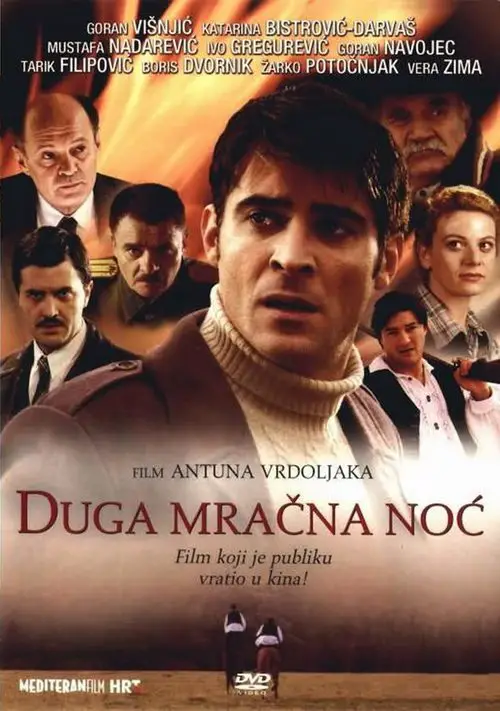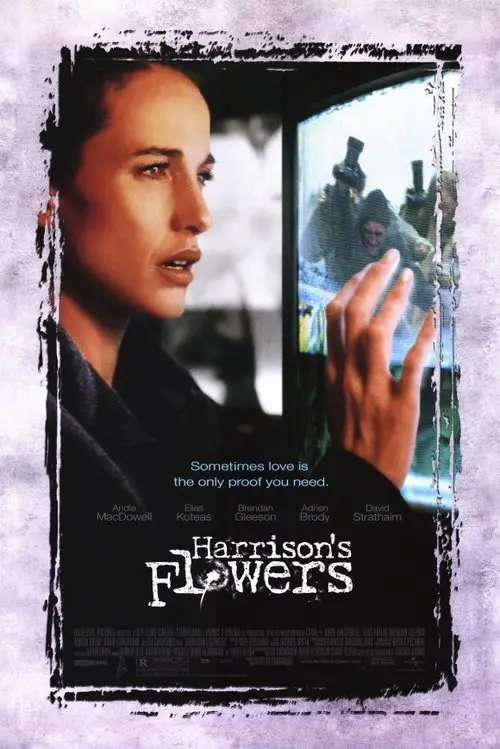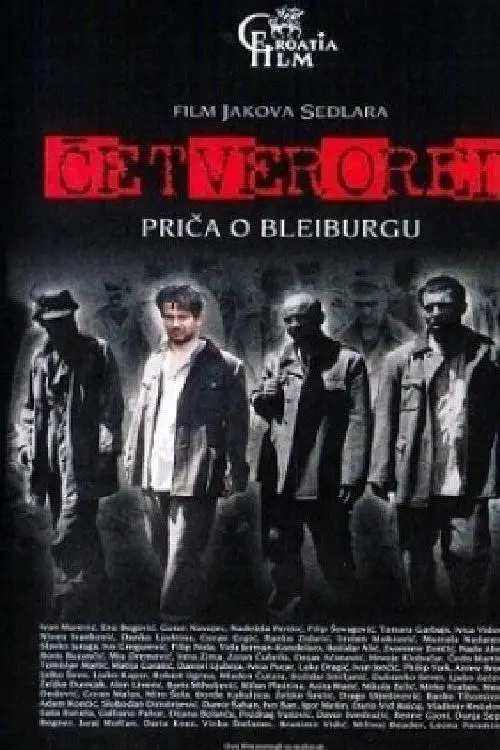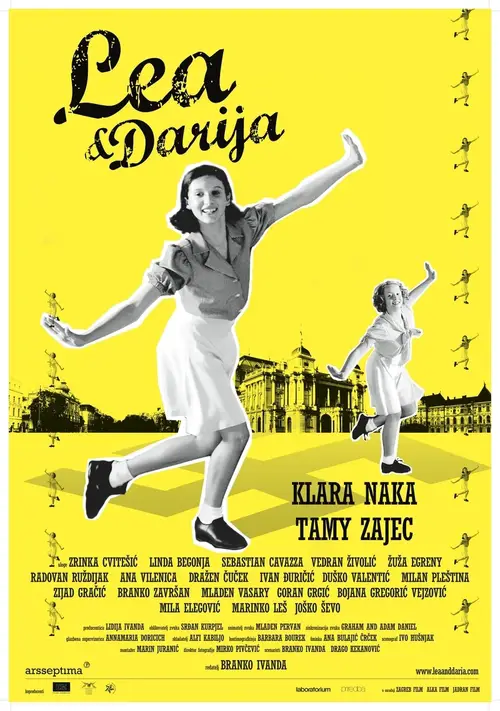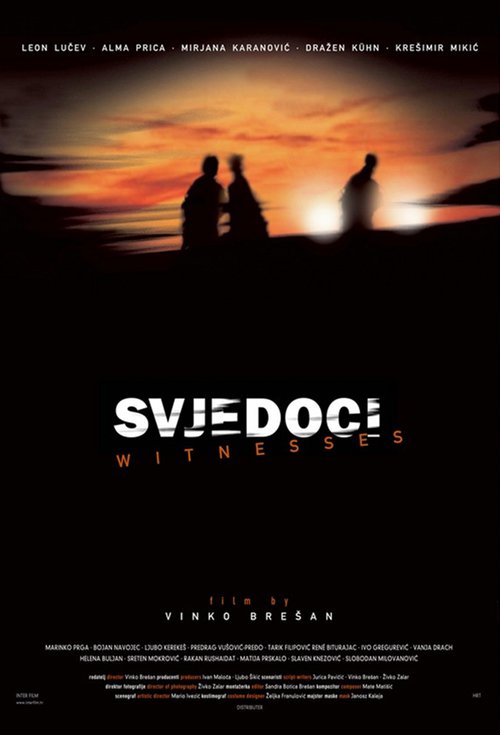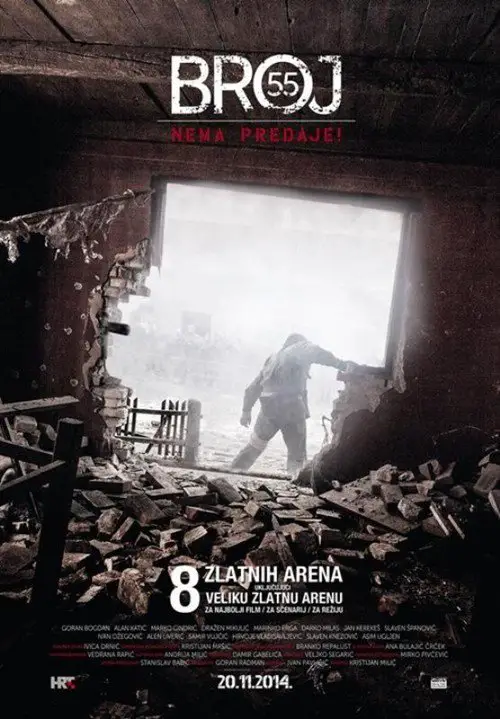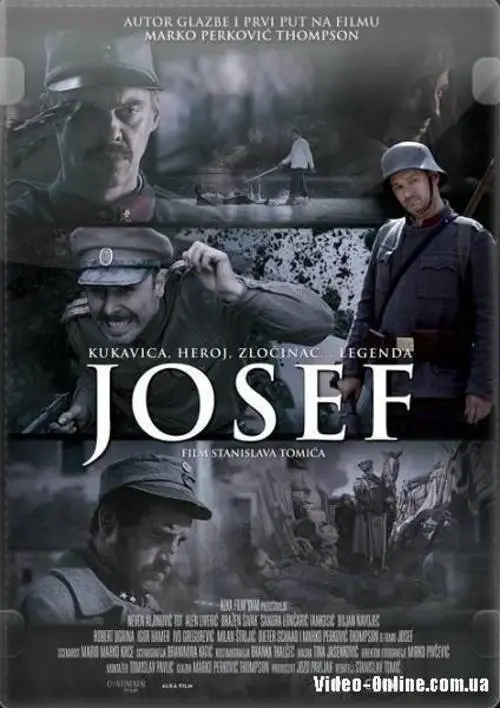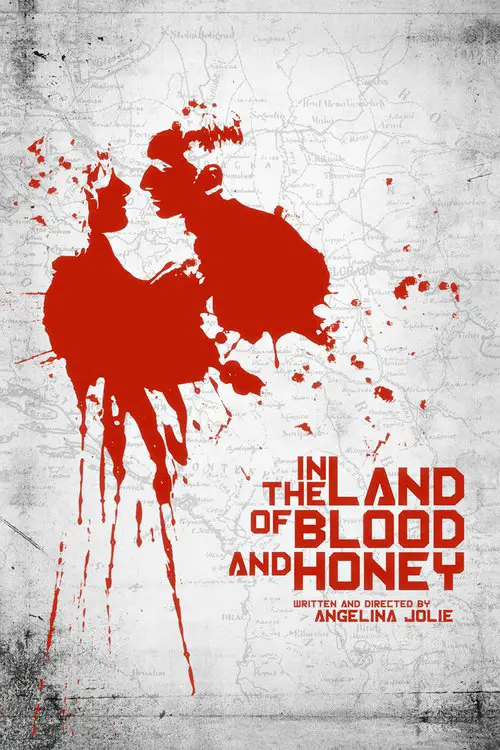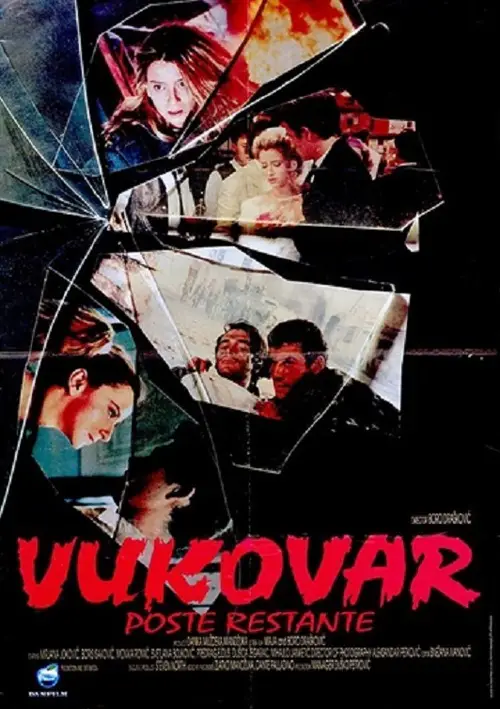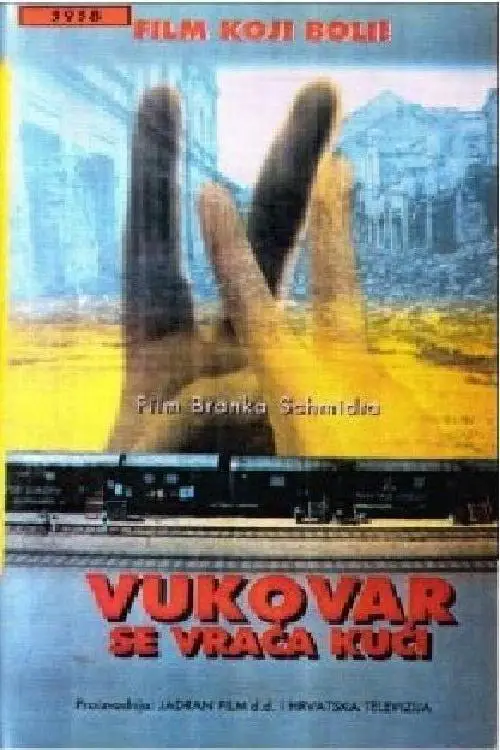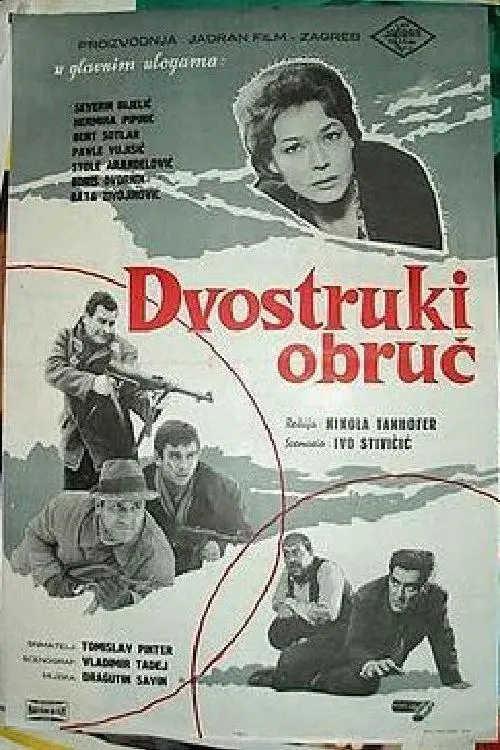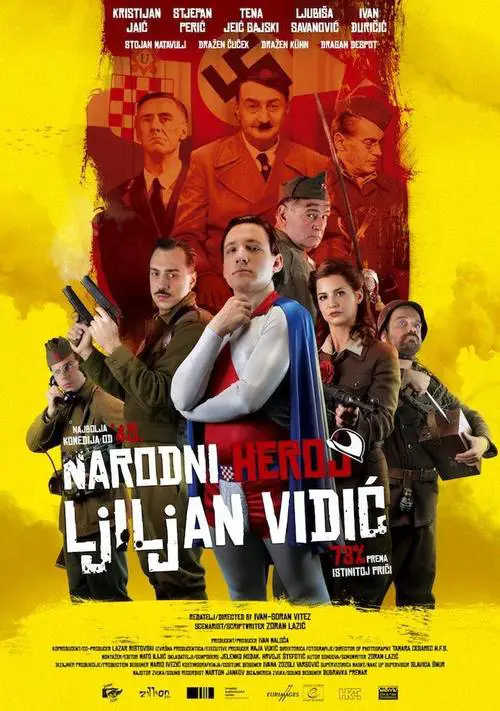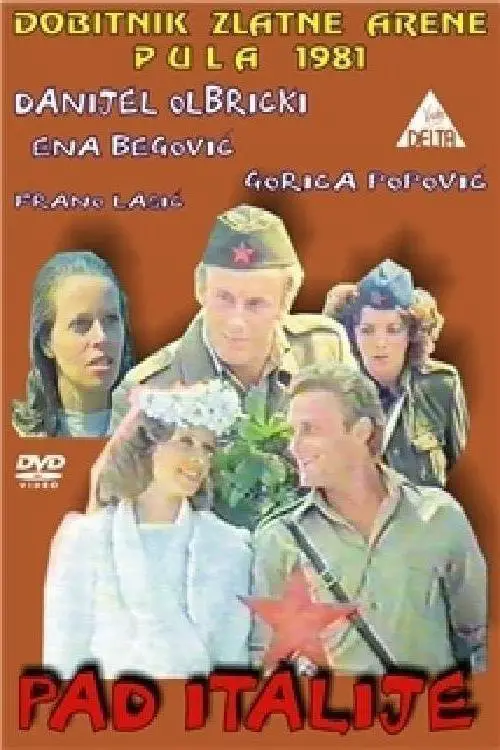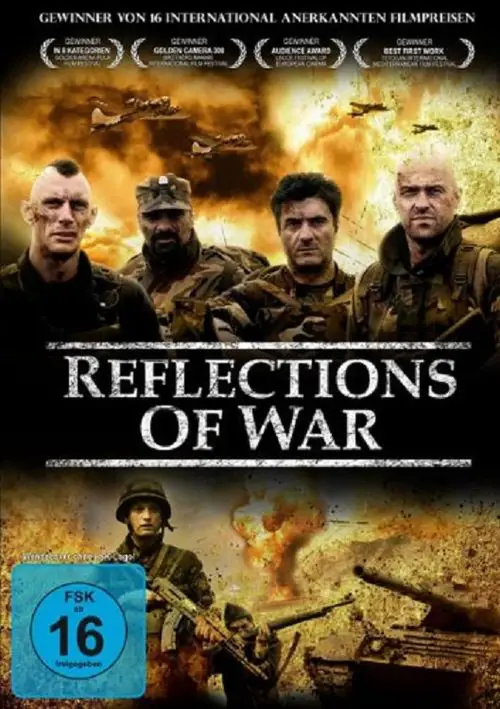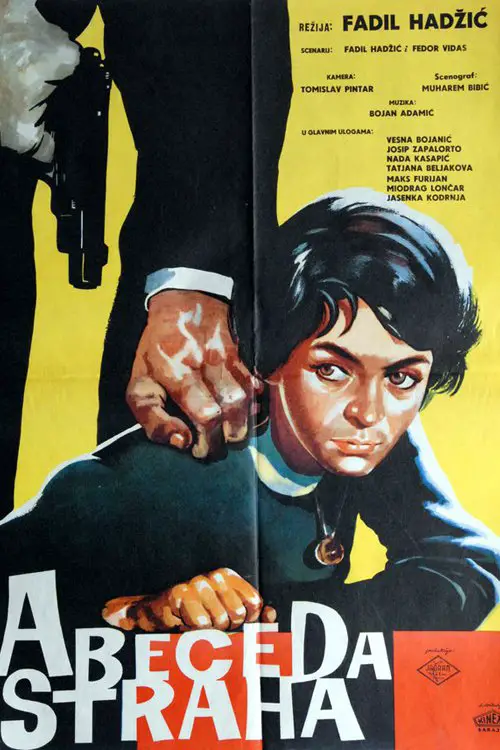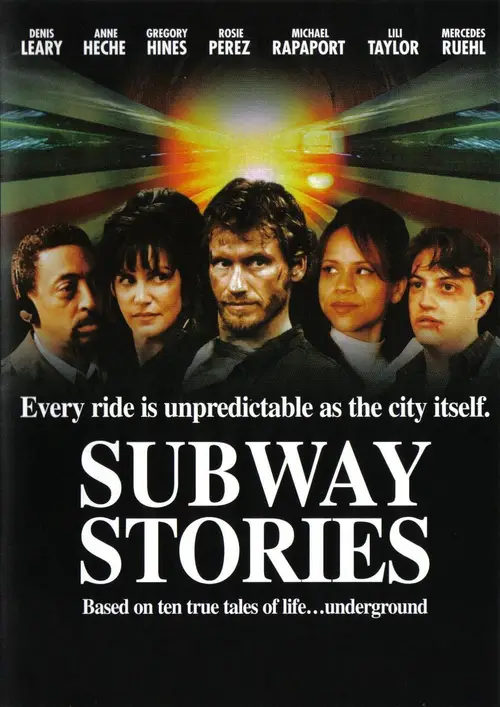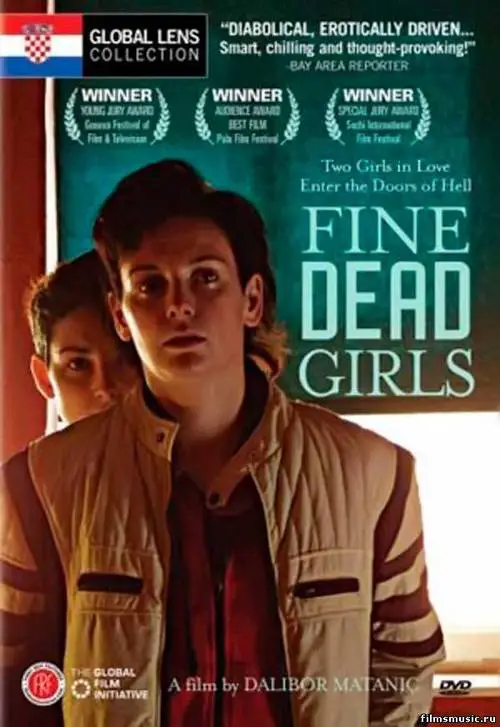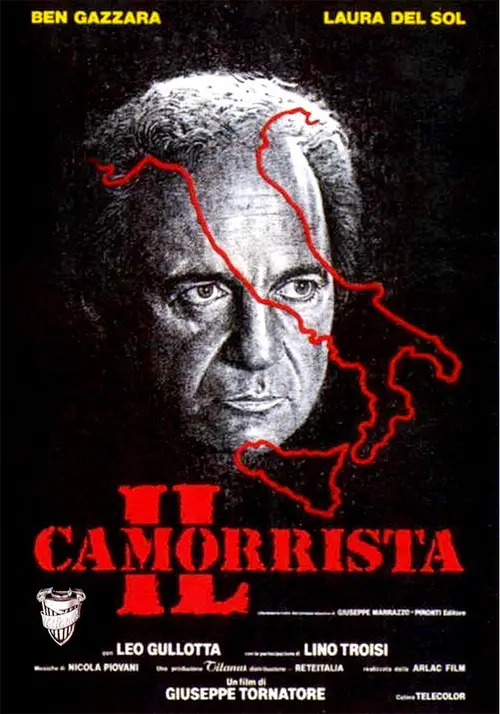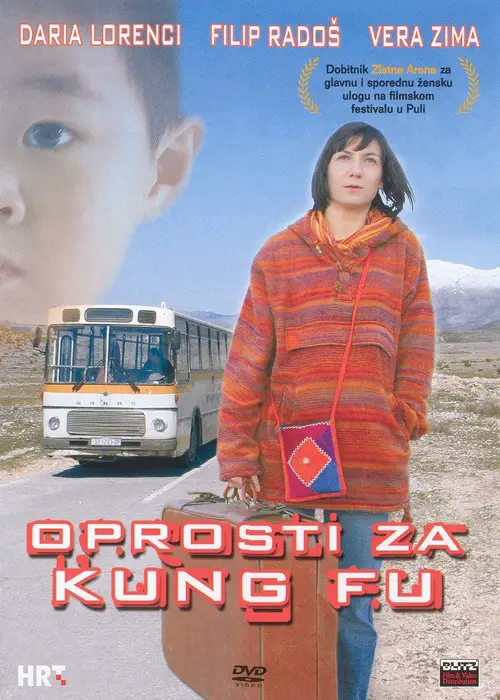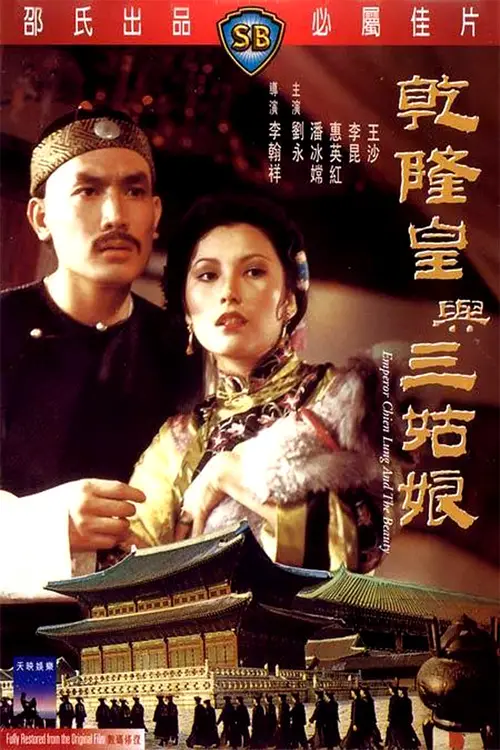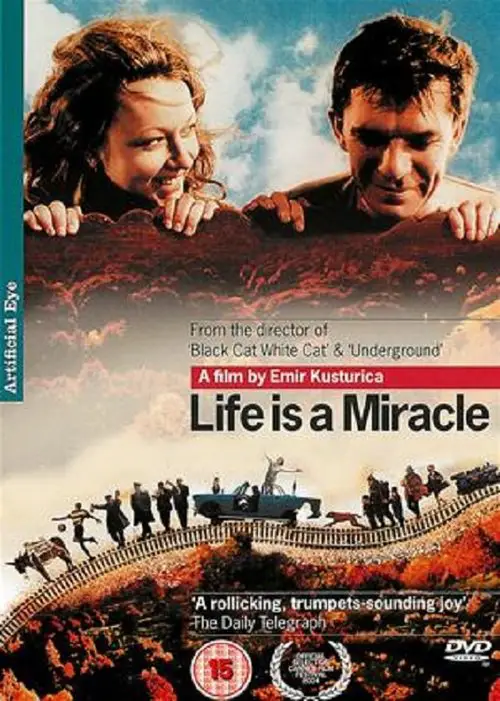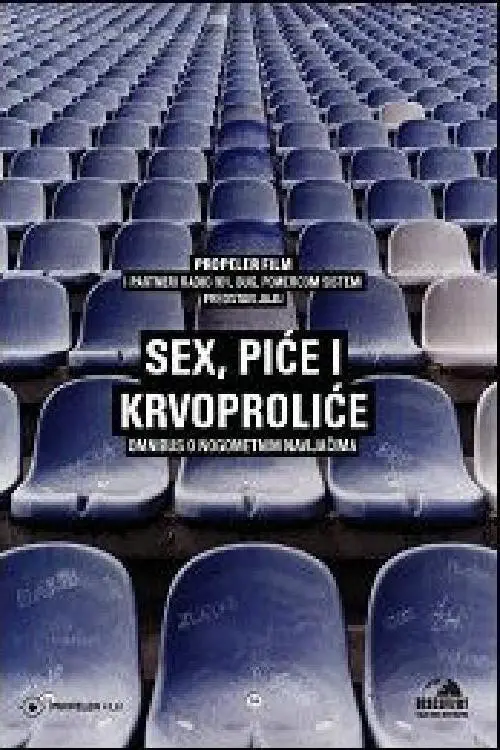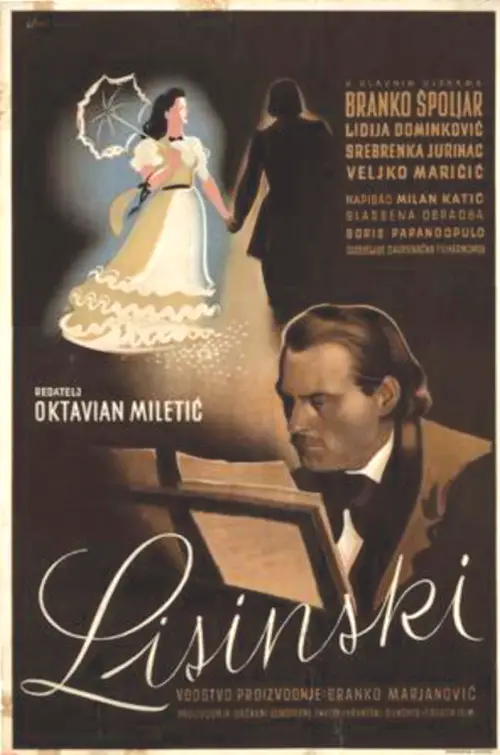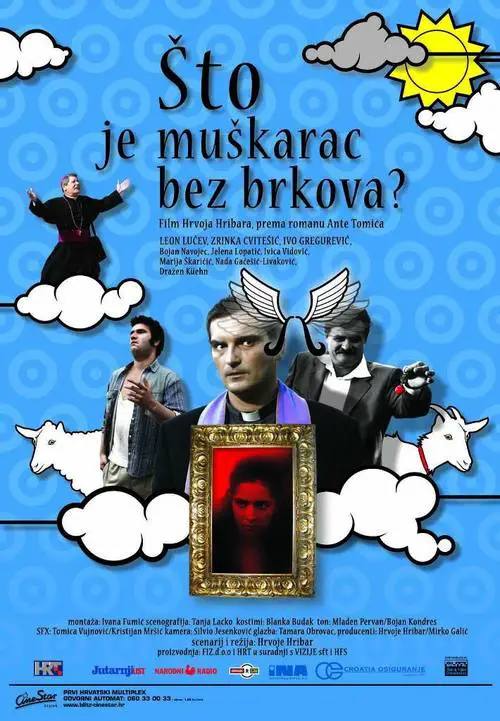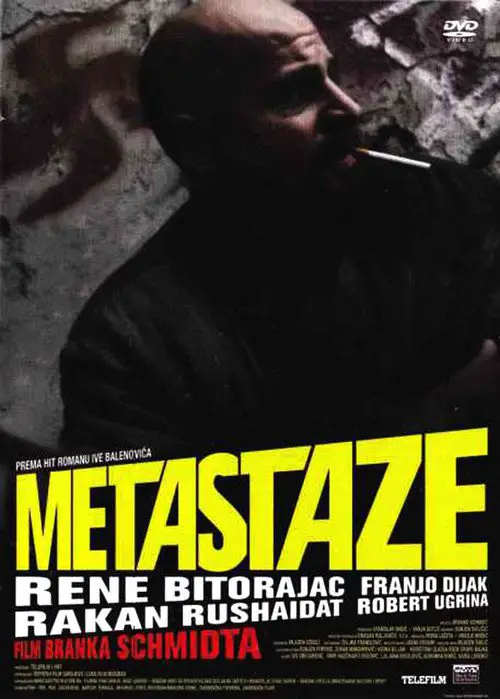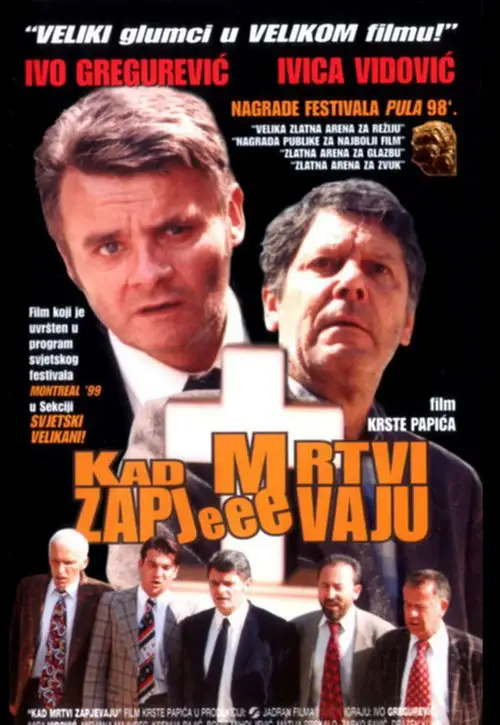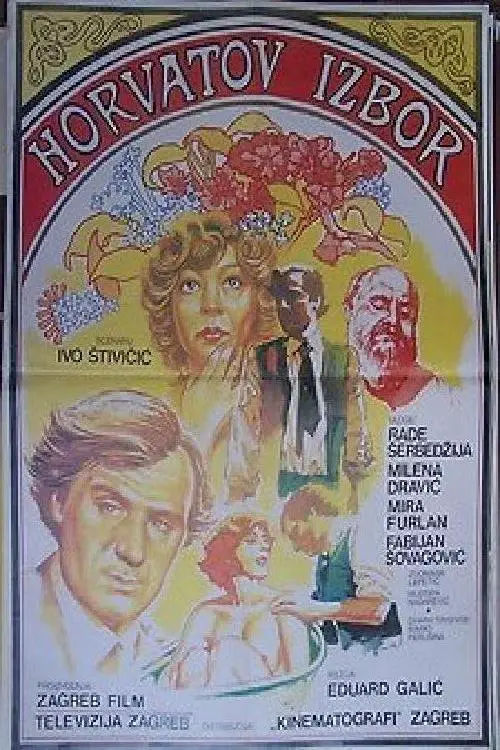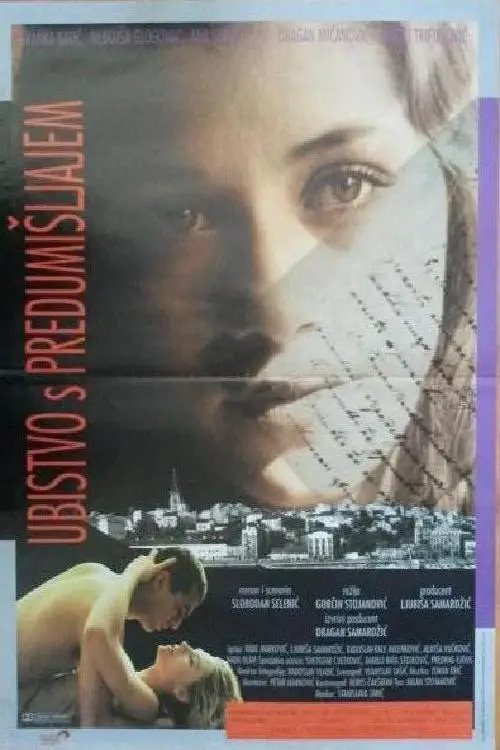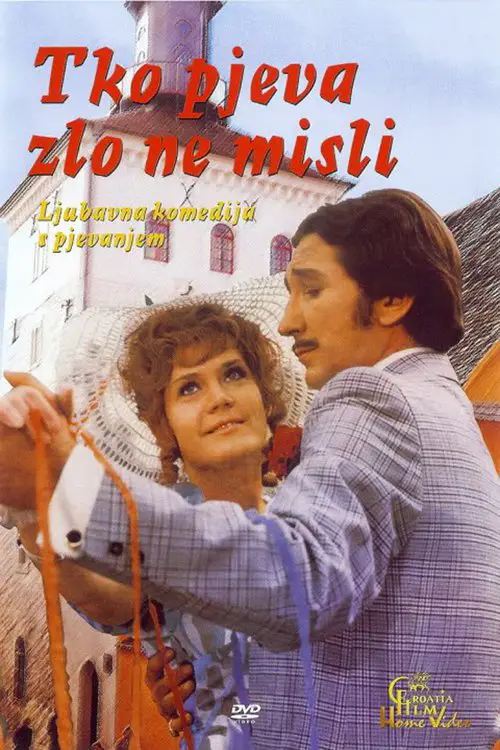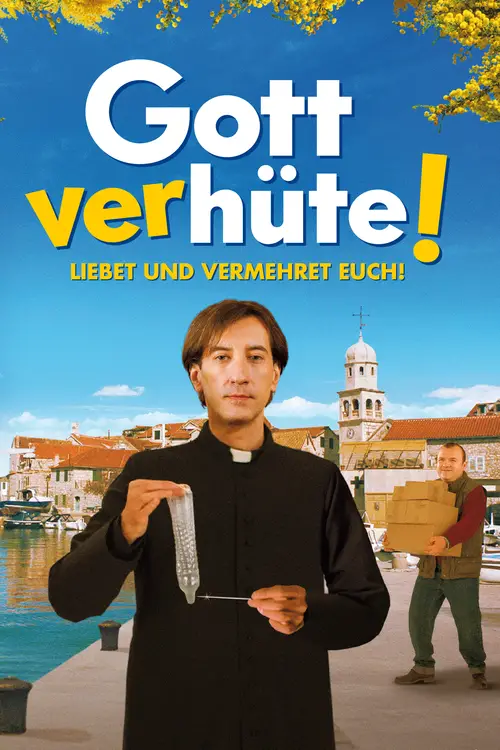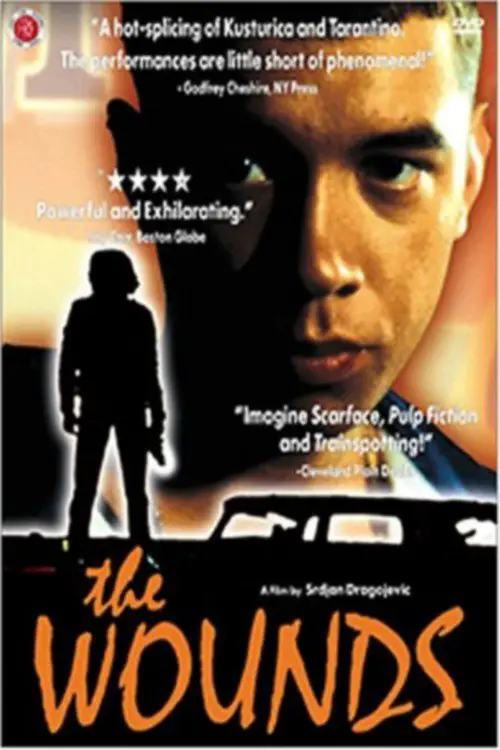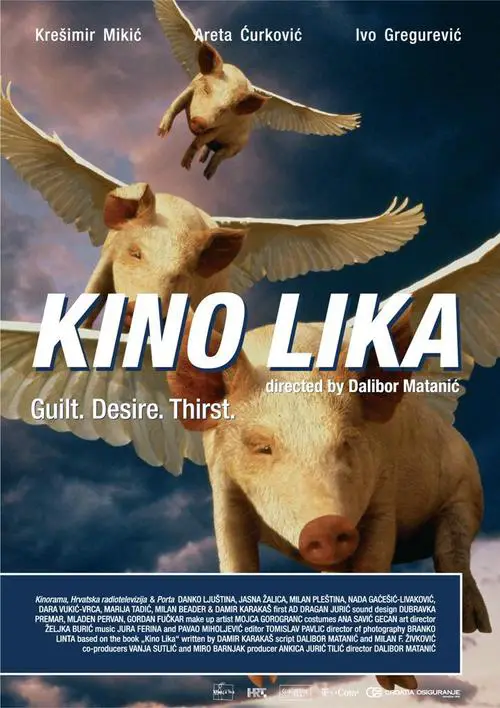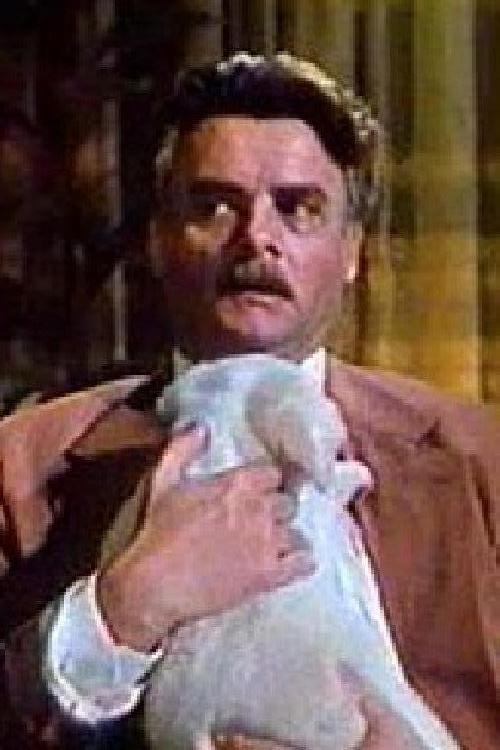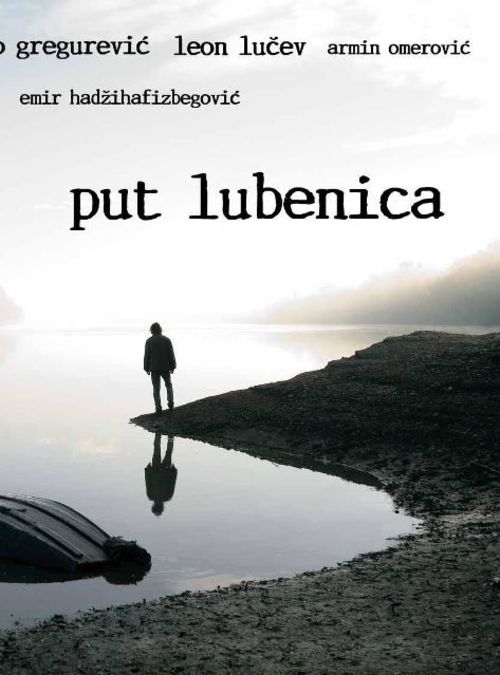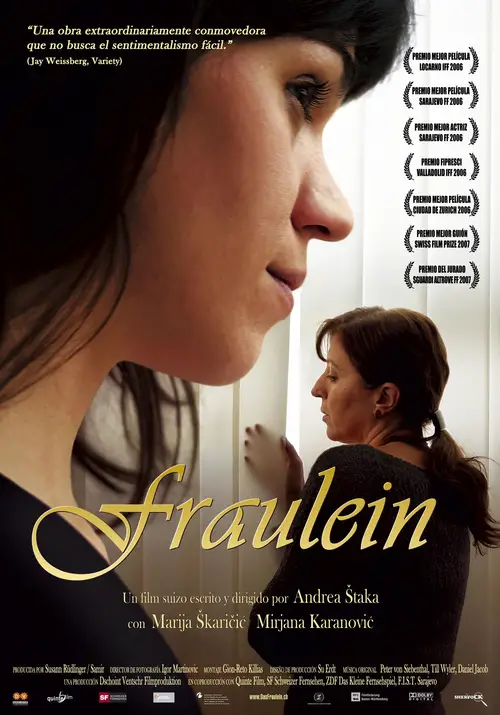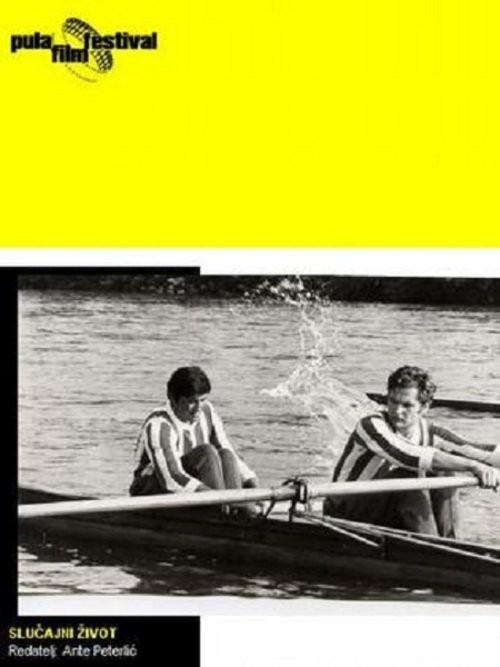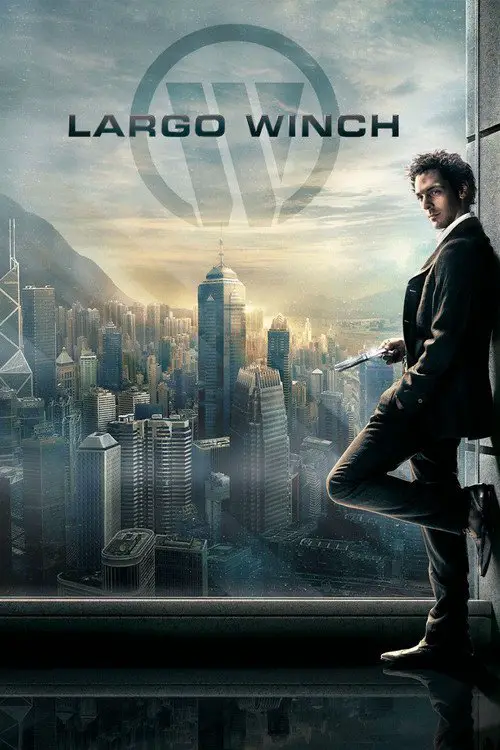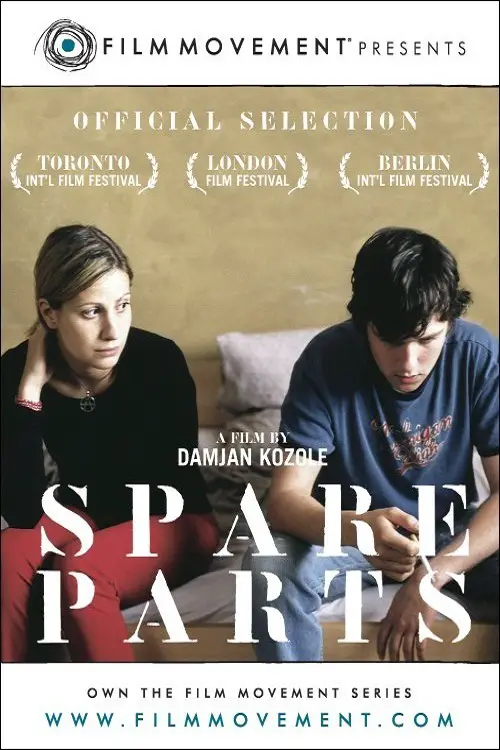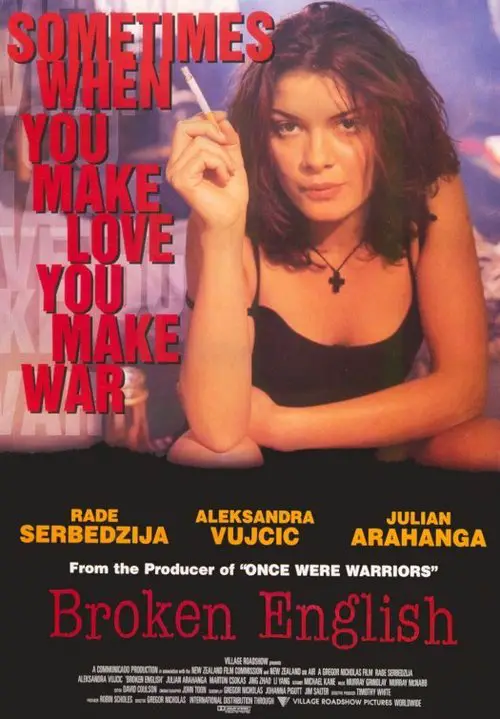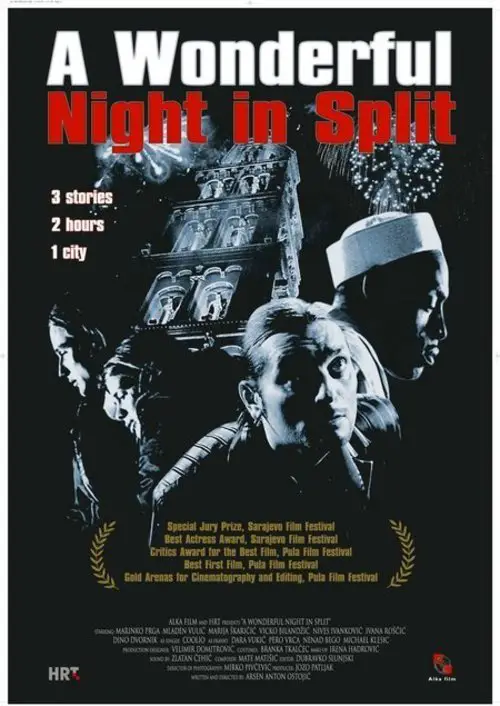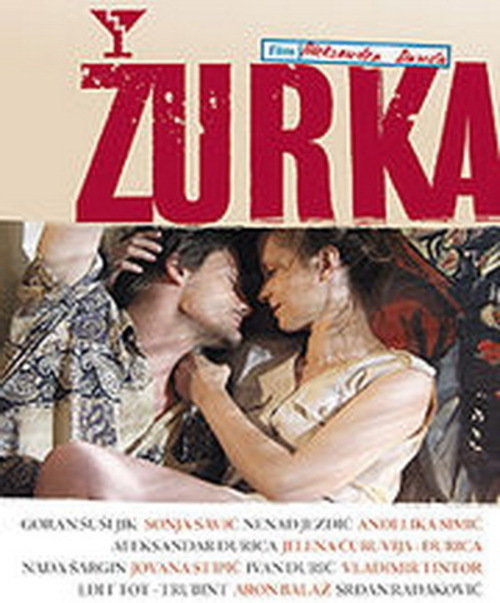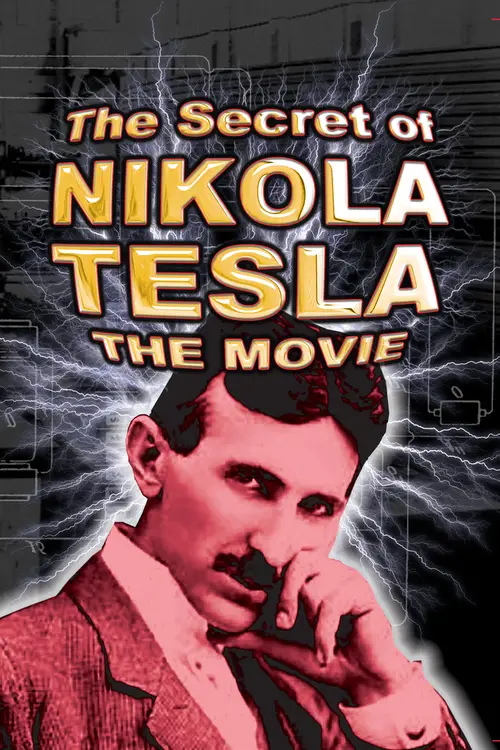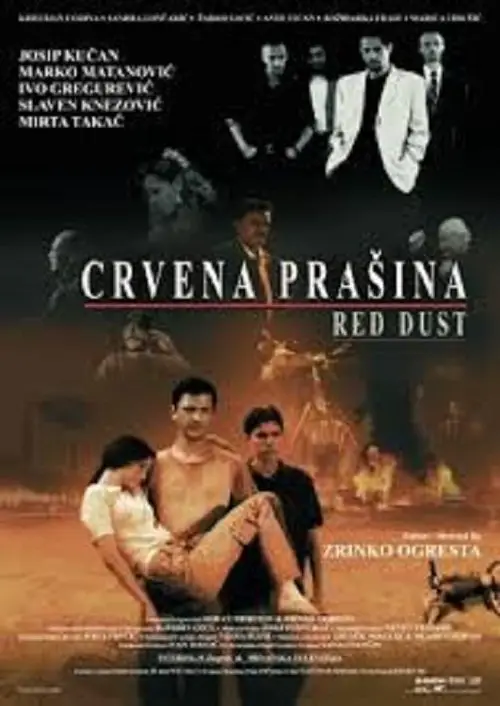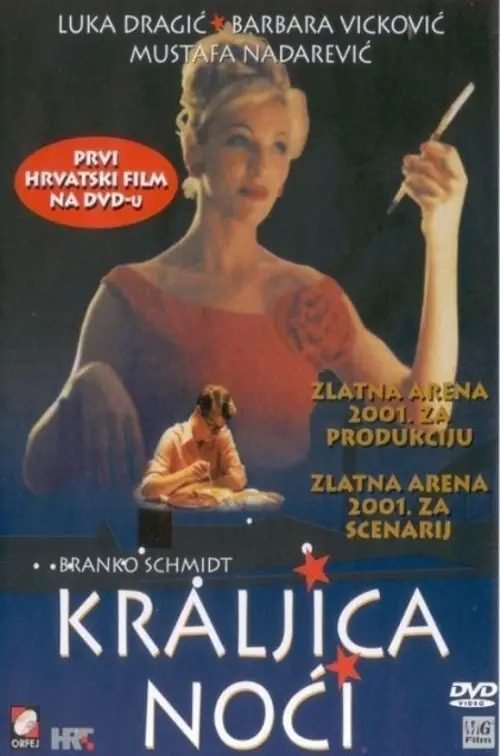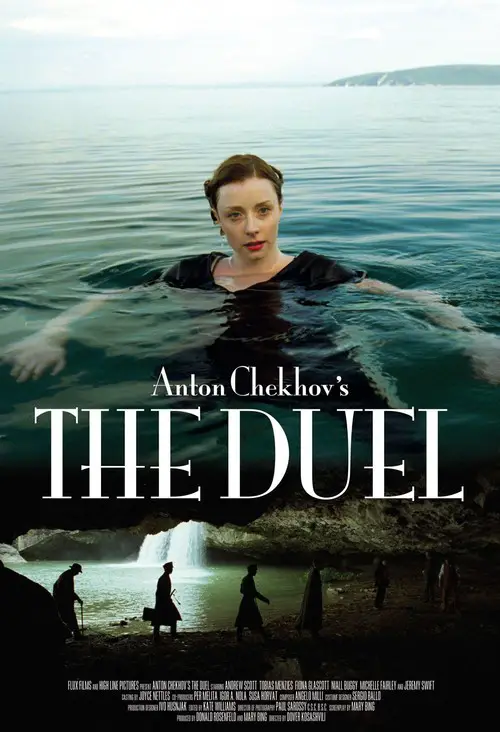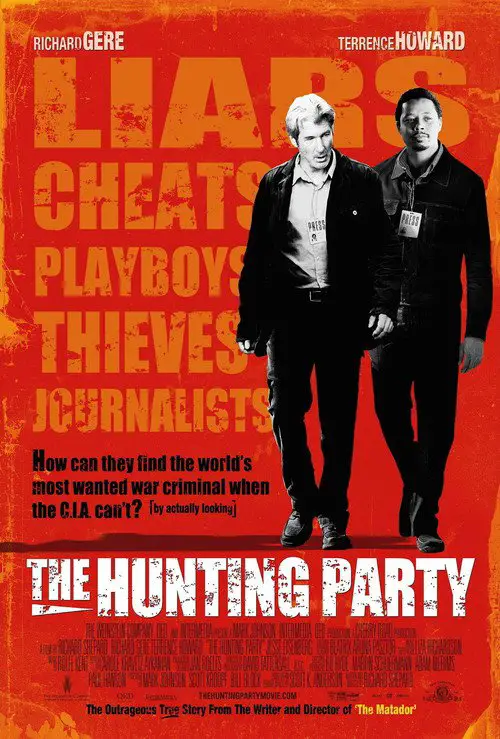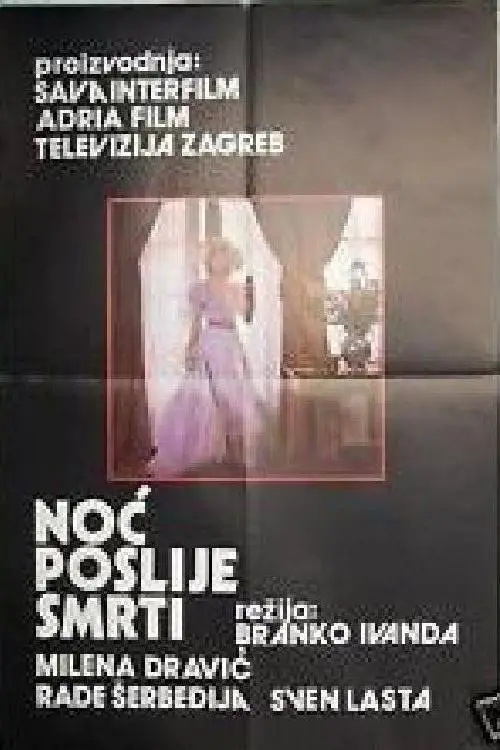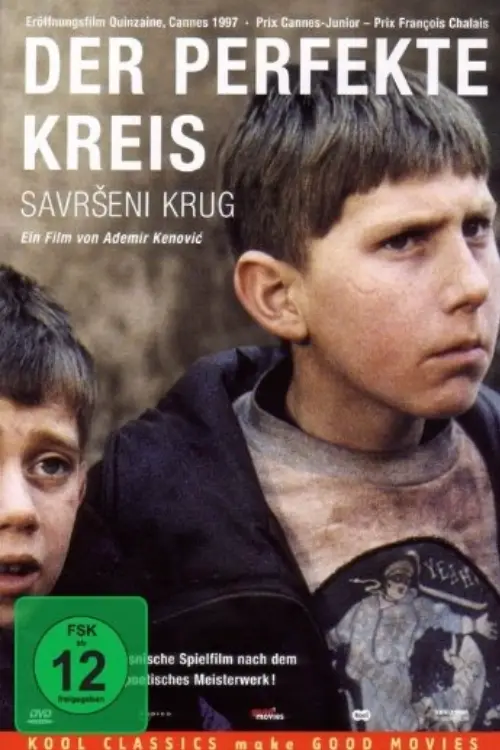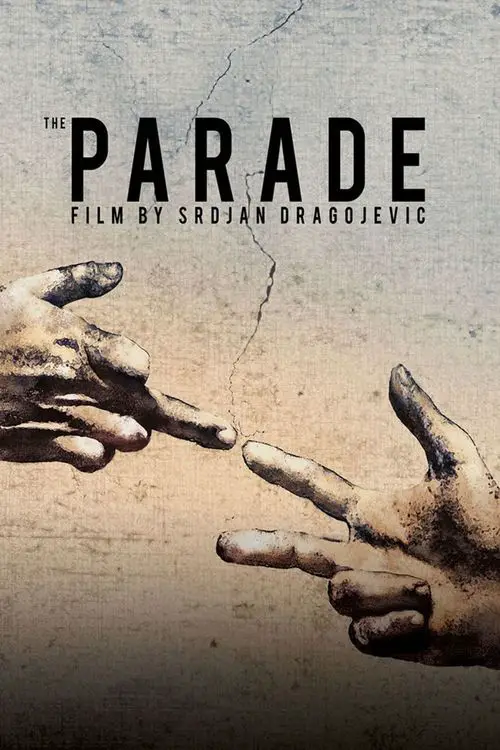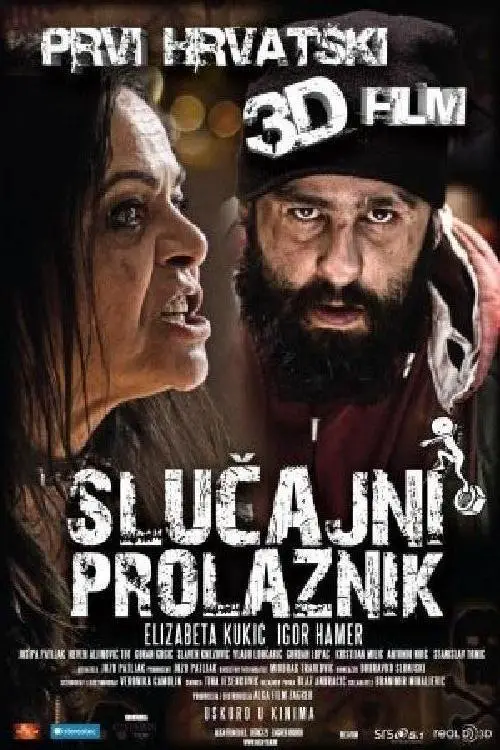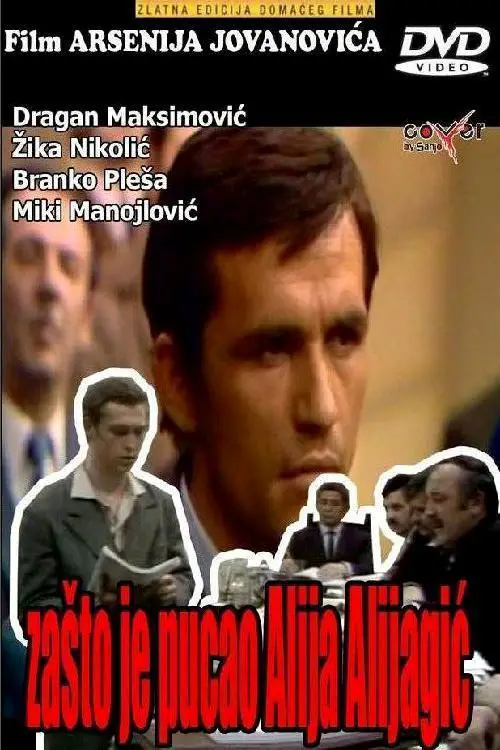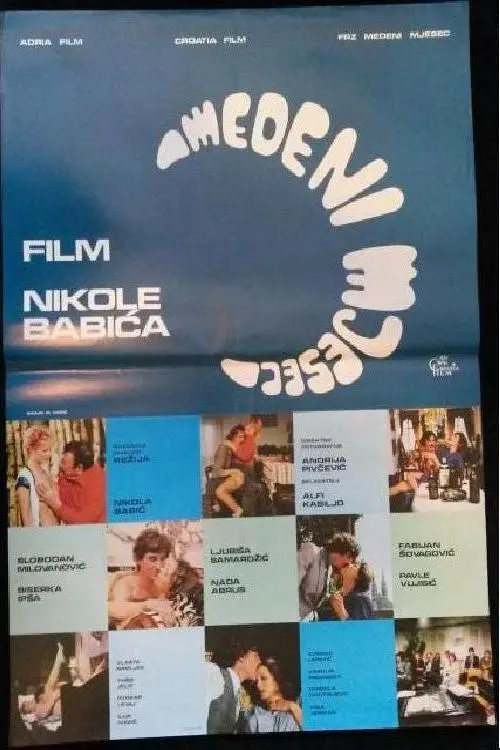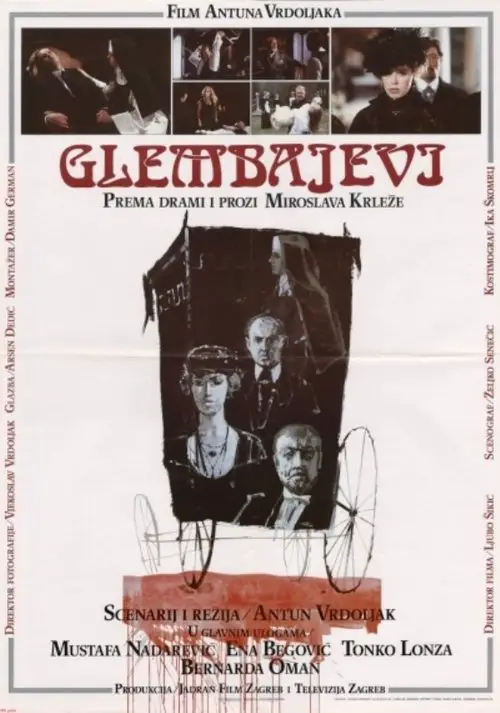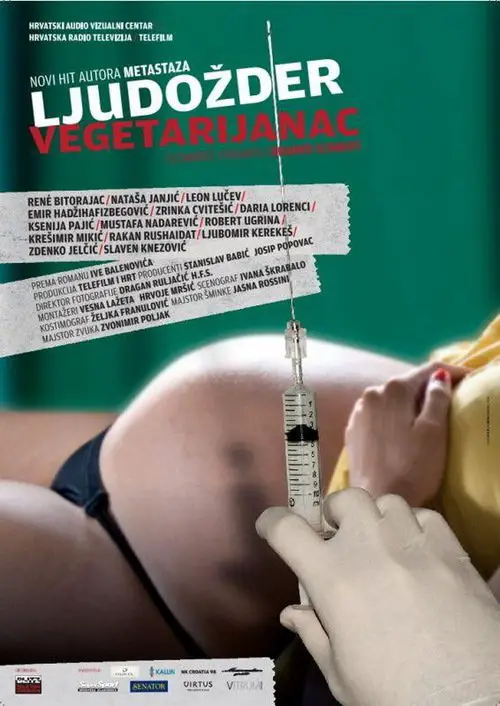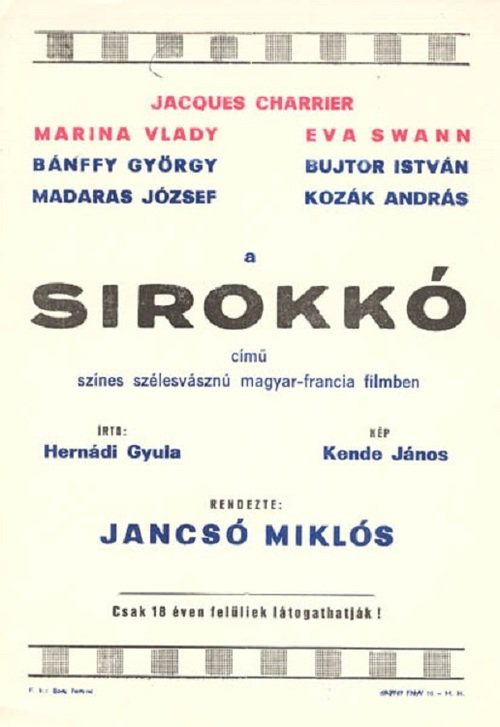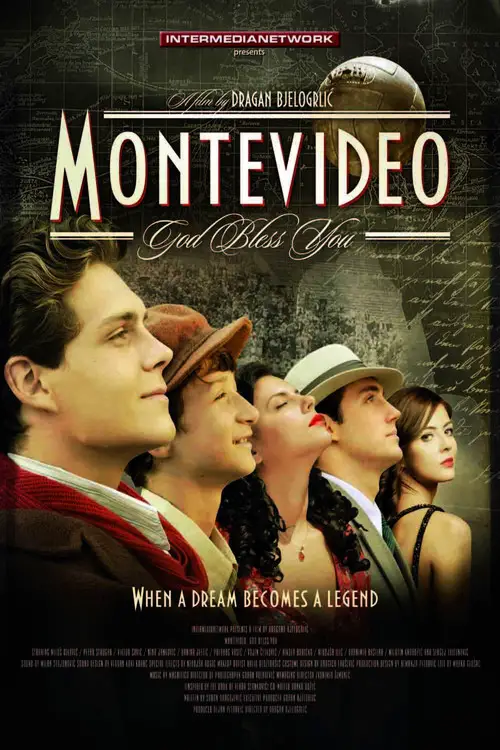The Price of Life (1994)
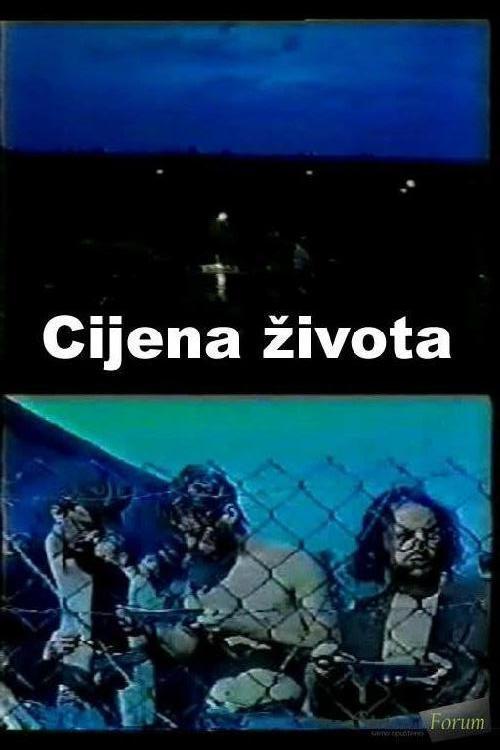
Similar movies
Harrison Lloyd is a Pulitzer-winning photojournalist. His wife and family are making it hard for him to keep his mind on his work when he's in a war zone, and he wants to change jobs to something less stressful. But he's got one last assignment, in war-torn Yugoslavia, in 1991, at the height of the fighting. Word comes back that he apparently died in a building collapse, but his wife Sarah (also a journalist for Newsweek) refuses to believe that he's dead and goes looking for him. She's helped immensely by the photo-journalists Eric Kyle and Marc Stevenson that she runs into over there; together, they're determined to make it through the chaotic landscape to Vukovar, which is not only the nexus of the war but where she believes Harrison is located. Meanwhile, Harrison's son Cesar is looking after his father's prized greenhouse, keeping hope, and flowers, alive.
Itâs inspiring true story about two thirteen-year-old girls who were, on the eve of World War II, great dancing and acting stars in Zagreb. Selling out theatre venues, they were praised in the most superb headlines by the Croatian and European press. They were filmed by Parisian Pathe and Berlinâs UFAâ¦
During the Nazi persecution of Jews and the later German nationalsâ flight from communists, a dramatic friendship was born through entertainment, dance, but also anxiety. This led towards an unexpected end.
Set amid the atrocities of war in the Balkans, Witnesses is retold, Rashomon-style, from various characters' viewpoints, adding new information about the complexity of war and humanity. Beginning inside a rustic house with a woman in black (Mirjana Karanovic) standing beside her husband's coffin, Witnesses interweaves the stories of a small town confronting ethnic hatred and deep moral ambiguities.
In the autumn of 1991, a small group of Croatian soldiers go on patrol in an improvised armored vehicle. Soon after that they would get ambushed and their vehicle would get destroyed, in that situation they were forced to hide in a nearby house. Whilst stationed in that house they would get attacked by rebel Serbs, Serbian Special Forces and the JNA (Yugoslav People's Army, also reffered to as Yugoslavian National Army). Their resistance to the attackers would last 24 hours whilst their fellow combatants would attempt to try and get them out of there. The movie and story is based on true events which happened during the Croatian War of Independence.
Pretty Village, Pretty Flame (Serbian: Lepa sela lepo gore) is a 1996 Serbian film directed by Srdan Dragojevic that gave uniquely bleak yet darkly humorous account of the Bosnian War. It is considered a modern classic of Serbian cinema.[citation needed] Almost 800,000 people went to see the movie in cinemas across Serbia. This equates to approximately 8% of the total country's population at the time of the film's release. The plot, inspired by real life events that took place in the opening stages of the Bosnian War, tells a story about small group of Serbian soldiers trapped in a tunnel by a Muslim force. The film's screenplay is based on an article written by Vanja Bulic for Duga magazine about the actual event. Through flashbacks that describe the pre-war lives of each trapped soldier, the film describes life in former Yugoslavia and tries to give a view as to why former neighbours and friends turned on each other.
At the beginning of 1991, Yugoslav army did not acknowledge Croatian's independence, and still holding few military barracks in Croatia. Gajski travels to an island to get his son out of the army. Locals have besieged the barracks and organized a festival to try with singing and recitals to get major Aleksa and his soldiers to surrender, but Aleksa has explosives thru the barracks and wants to blow up the island.
The story follows a group of Croatian refugees who have been forced to leave their hometown of Vukovar by Serbian forces during Croatia's struggle for independence. The people are settled at a railway station in a village near Vukovar, where they live in a train which is adapted to serve as a temporary accommodation.The situation grows dim as the date of their return proves to be uncertain, and the lives of the survivors and refugees becomes more and more complicated being burdened by PTSP and strong feelings of hope to return to their homestead.
This comedy of the absurd is set in the Nazi puppet Independent State of Croatia (NDH) during World War II. The hero, Ljiljan is a young peasant poet who joins the Partisan movement just before it falls apart, abandoned by its leader Tito. The last remaining hope for resisting Nazism is to assassinate Hitler. Ljiljanâs task is to write a song that will allow his Partisan band to infiltrate the inner sanctum of the SS â by entering an SS talent show. If they win the competition, they will be invited to perform before Hitler and the NDHâs high command. This is a satirical coming-of-age tale with a difference, capturing the craziness, comedy and horror of war in the Balkans.
The setting is the islands off the Dalmatian coast of Yugoslavia, during WW II. The islands are controlled by occupying Italian forces, and a resistence movement of Communists is dedicated to sabotaging and ending the occupation. When a wealthy young man joins the resistence, he falls in love with a woman who turns out to be a spy for the Italians. As a result of his liaison and her activity, they are both executed by a Communist comrade - a previous friend. The comrade is dedicated to the hard-line policies of the resistence, until he himself falls in love with the daughter of a bourgeois landowner on the island - a landowner who has collaborated with the Italians. Neither the Italian occupying army (one officer is shown in an attempted rape scene) nor the resistence fighters are stereotyped forces for good or evil, but all are equally subject to the dehumanizing effects of war.
In 1943, group of Croatian soldiers overtake a strategically important point in western Bosnia with a goal to destroy a group of communist partisans. On the way they met some supernatural phenomena, and the action itself went very badly because the partisans ambushed them. The main character Martin inherits silver cigarette case from a dying soldier. This act connects to the story in 1993 when we meet Martins grandson Tomo. He is one of six soldiers of the Croatian army who have come to the same place in Bosnia to meet the same phenomena and similar fate.
In order to gather informations about high-ranking collaborationist official, the resistance movement sends a girl to spy on him. She uses the cover of illiterate chambermaid from the country. In the beginning nobody is suspicious, but her cover would be endangered when the official's daughter starts to teach her reading.
The actual experiences of New York City subway riders are dramatized in a collection of 10 intriguing and very different vignettes. The tales showcase an ensemble of familiar faces, and range from stories of compassion and love to reflections on violence and loss. Among them: a disabled beggar quarrels with a woman and ruins her shoes with his wheelchair, provoking onlookers to wrath and pity; a skittish tourist proves to be her own worst enemy; a newlywed trysts with a mysterious sexpot; a commuter helplessly witnesses a suicide attempt; and, in the most affecting segment, a young woman grieves over her mother's imminent death.
Iva and Maria, a young lesbian pair, rent a favorable, nice dwelling in a less good area of Zagreb, Croatia. But unfortunately, included in the rent are the neighbors, the neighbors from hell. The curious landlady, foreigners flogging nationalists, an old man, who live with his dead wife and a man, who beat his wife regularly, are just one part of this neighbourhood. When one of the neighbors falls in love with Iva, the situation escalates - with the result of three dead people at the end.
Vaguely inspired to the real story of boss of the Camorra's bosses Raffaele Cutolo, this is the story of the criminal career of "Il professore" (the professor). He is in prison, and by there he is able to build, step by step, an empire founded on murders and drugs. He starts a war to destroy all the old Camorra bosses and becoming the new "boss of the bosses". With his sister's help he manages to evade from prison and escape in New York. Here he starts immediately a new relationship with "Cosa Nostra" (Italian American Mafia). He is going to seat on the peak of the most powerful criminal organization, and the Italian authorities are almost impotent.
Mirjana is returning to Croatia from Germany where she spent some time as a refugee. She is pregnant. Now, when the war in Croatia is over and her visa expired, Mirjana is coming back to her family in a remote and devastated village. Her family is trying to move on with their lives after the war. They rebuild their house and they are trying to find a new husband for their pregnant daughter. Being patriarchal and devoted to their tradition they believe a woman needs to have a husband and a child has to have a father. Of course, the child and the father have to be of the same nationality. Problems start when Mirjana gives a birth to a boy with Asian features. The family and the neighbors are shocked. Mirjana¡¦s rigid father refuses to accept a grandchild of a different nationality, not to mention the one of a different race! Mirjana and her son are forced to leave. She returns only when her father falls seriously ill and requests to see his grandson before he dies.
Stopping briefly in a small Texas town, an itinerant race car driver finds that his stock car, on a trailer behind his motor home, has just been quickly and expertly stripped. He chases down the miscreants, who turn out to be six orphan children. He has no recourse to the law, for the corrupt local sheriff takes most of the proceeds of their thievery in exchange for not putting them in an orphanage. They are charming rogues who are in turn charmed by him. Disliking their arrangement with the sheriff, they stow away with him, and he finds himself becoming a reluctant stepfather. Thanks to their enthusiasm and incredible mechanical know-how, he begins to make a name for himself on the racing circuit. But the sheriff doesn't take kindly to losing his extra income...
Life is a Miracle (Serbian: Život je Äudo) is a Serbian drama film. It was entered into the 2004 Cannes Film Festival. Luka has moved to Bosnia from Belgrade with his mentally unstable wife and his football-playing son, MiloÅ¡, to run a railway station and act as caretaker. Utterly engrossed in his work and blinded by natural optimism, Luka remains deaf to the increasingly persistent rumblings of war, which has broken out in Croatia and threatens to spread. When the conflict explodes, MiloÅ¡ is denied his place on the football field when he must join the Serbian army, and his wife disappears on the arm of a Hungarian musician. Eventually, he receives news that MiloÅ¡ has been taken prisoner of war. Luka considers suicide, but a profiteering acquaintance presents him with Sabaha, a Bosnian Muslim whom he has taken hostage. Luka intends to exchange Sabaha for MiloÅ¡, but the two fall in love after they are forced to flee deeper into Serb-controlled territory...
At the beginning of 1990s, two Croatian emigrants, economically minded Cinco and politically minded Marinko, arrive in Croatia from Germany, homesick for their families and hometowns. In order to get a German pension, Cinco pretends to be dead and travels in a coffin. Soon, Marinko joins him because he is running away from an old agent of the Yugoslav State Security Service. On their trip in a motor hearse, Cinco and Marinko face many adventures, which culminate when they are stopped at Serbian barricades close to their destination.
It is 1918, the evening of The Great War. Austro-Hungarian empire is collapsing, and all around Croatia there are outlaw deserters, fighting in forests. A city journalist decides to become a country schoolteacher, just to find some peace in that restless political situation. But, neither the village is safe from the militaristic policy of the imperial goverment.
Men, women, and war. Jelena Panic is a young woman in Belgrade in the early 1990s, during Serbia's war with Croatia; she's making a book of her grandmother's diaries from the end of World War II. She takes up with Bogdan, a young soldier recovering from war wounds. He helps her with her grandmother's story, a tragic triangle involving her effete and well-educated husband and an uneducated major, a Chekist who has, perhaps, the power to save a political prisoner who is the grandmother's friend. As Jelena wonders which man was her grandfather (the Chekist or the husband), Bogdan recovers from his wounds and must decide whether to return to the front. Jelena pleads; duty calls.
Set in pre-World War II Zagreb, the story is seen through the eyes of 6-year-old Perica Å afranek (played by Tomislav Žganec). A dandy from Zagreb, Mr Fulir (played by Relja BaÅ¡iÄ), starts flirting with Perica's mother during a family picnic. At first, Perica's father doesn't notice anything, but wants to marry off Perica's aunt, so he invites the man to their residence. After multiple rendezvous, Perica's father becomes aware of Fulir's attempts to seduce his wife.
Don Fabijan is a young priest who comes to serve on an unnamed small island in the Adriatic. In order to help increase birth rate on the island, he decides to pierce condoms before they are sold. He therefore teams up with the newsagent Petar and the pharmacist Marin. After they abolish all forms of birth control on the entire island, the consequences become more and more complicated.
A godforsaken mountain village is the only home that a young football player, a miser peasant and a fat girl have. This isolated part of the country finds itself in the middle of the referendum for or against the EU. Our characters couldn't care less - they are absorbed in their problems. The young football player who accidentally killed his mother doesn't want to join a rich foreign football team and is willing to risk his father's love because of it. The lonely fat girl is so desperate for a friend and for a lover that she will end up seeking both in the pig-sty. The miser peasant will find out that the real misery is in loneliness.
After the breaking of mass movements in 1971., the student Ilija Baric must leave the country because of his political beliefs, and his father Luka lost a job and goes to work to Germany. After Titos death in 1980. there is a new political motion, but repression is still strong. That feels even decennial John, the brother of Ilija, who is in love with Marina, the daughter of the Head of the police and Communist Andrew.
The movie takes place in the early 18th century on the borders between Bosnia and Dalmatia, the crossroad between the Ottoman Empire and the Republic of Venice. It deals with issues relating to the region's native Croats as they struggle between to live between two empires and two faiths: Catholicism and Islam.
Two friends try to tear out their lives from the clutches of idle. An existential study of ordinary lives led by two alienated urban white collar workers, Accidental Life was the only feature film of Ante PeterliÄ, Croatian film theorist and film critic. The film received mediocre reviews and went largely unnoticed after its release, but has been reevaluated decades later as one of the best Croatian films ever made.
Embittered widower, Ludvik, spends his nights transporting illegal refugees in his van from Croatia, across Slovenia, and into Italy. The young and inexperienced Rudi acts as his helpmate. Together they become a well-trained duo who almost every night convey "spare parts" to Italy. Of course the story of their illegitimate exports into Europe ends tragically, for everyone. The whole idea of this account is that everyone - including ourselves - is looking for happiness: the "spare parts" because of the misery they are plunged into without, and our characters because they can't find it inside
Ivan is the fierce patriarch of a family of Croatian refugees in Auckland. Nina is his daughter, ready to live on her own, despite his angry objections. Eddie is the Maori she takes as her lover. Nina works at a restaurant where Eddie cooks. For a price, she agrees to marry a Chinese, another restaurant employee, so that he (and his Chinese wife) can establish permanent residency. The money gives her the independence she needs to leave her parents' house and move in with Eddie. Complications arise when Eddie realizes the depth of her father's fury and the strength of Nina's family ties.
The film is set over the course of a New Year's Eve night in the Croatian port city of Split, where it follows three parallel plots. The first plot line features a small-time drug dealer Nike (Marinko Prga) and a young widow Marija (Nives Ivankovic); the second plot line deals with a drug addict called Maja (Marija Skaricic) who decides to have sex with an US Navy sailor called Franky (Coolio) in exchange for some heroin; the third one shows a young couple, Luka and Andela (Vicko Bilandzic and Ivana Roscic) who spend the night desperately looking for a place to celebrate the New Year by having their first sexual experience. The plots are connected through Dino Dvornik's concert, where all of them pass through at some point, and through the omnipresent fireworks that dot the night sky over the course of the film.
In the summer of 1991 the war broke out in Croatia. In a holiday house in Fruška Gora hills in Serbia, near the border with Croatia, a group of young people are having a birthday party. They try to have some fun and act like nothing is going on. The party is shattered by the war. They can hear the artillery, but something is also happening between them. Inevitably, some of the boys end up on the frontline and everyone of them is effected by the war that is starting to rage. "The Party" is about individual destinies of the characters trapped in isolated house in hills and surrounded by growing paranoia of the officially not yet declared war.
The story takes place in Osijek in 1968. Seventeen-year-old Tomo is the greatest hope the town of Osijek has for winning the Junior Cup of Yugoslavia. Josip Broz Tito himself is expected to come to Osijek to open the competition. Nevertheless, Tomo is more interested in girls than in rowing. The beautiful prostitute Betika and a lovely girl named Jasna have captured his heart. Unfortunately, he has impotence issues of which even his doctors are unaware. Therefore, is unable to realize his sexual fantasies. Finally, he ends up in a hospital where local members of the political elite persuade him to compete in the cup. These pressures come to a head when his father is taken to prison as a political suspect.
An emerging journalist (Jesse Eisenberg), an experienced cameraman (Terrence Howard), and a discredited reporter (Richard Gere) find their bold plan to capture Bosnia's top war criminal quickly spiraling out of control when a UN representative mistakes them for a CIA hit squad in a light-hearted thriller inspired by Scott Anderson's popular Esquire article. The Weinstein Company provides stateside
An alcoholic Bosnian poet sends his wife and daughter away from Sarajevo so they can avoid the troubles there. However, he is soon descended upon by a pair of orphaned brothers. The brothers have escaped a massacre in their own village and have come to the Bosnian capital in search of a long lost Aunt. The poet befriends the boys and together they try to survive the horror of the siege of Sarajevo.
The Parade, in a tragicomic way, tells the story about ongoing battle between two worlds in contemporary post-war Serbian society - the traditional, oppressive, homophobic majority and a liberal, modern and open-minded minority... The film, which deals with gay rights issues in Serbia, features footage of the 2010 Belgrade gay pride parade. The film introduces a group of gay activists, trying to organize a pride parade in Belgrade
The reconstruction of assassination of Milorad Draskovic, then-minister of internal affairs in the Kingdom of Serbs, Croats and Slovenes, that took place on July 21, 1921 in Delnice, Croatia. This TV drama uses authentic recordings from the trial that resulted in death by hanging of Alija Alijagic, the man who shot one of the government's chief ministers.
The first soft core porn flick made in former Yugoslavia (today Croatia). It was a huge cause celebre for the participants and equally infamous for its innumerable shortcomings ranging from the lack of coherent plot-line to the most basic elements of film making. However, in time, it has gained a somewhat cult reputation. A priceless insight into an odd culture and its lax sexual mores and follies!
Danko Babic is an ambitious and amoral gynaecologist at Croatia's leading fertility clinic. When his colleague Bantic is appointed as head of the clinic, Babic starts a secret war to overthrow his rival. Distracted by his ruthless campaign he makes series of fatal mistakes that result in the death of a patient. A crooked coroner and a corrupt police officer cover up his misdeeds, while Babic grows increasingly dependant on drugs and alcohol. He begins performing illegal abortions on prostitutes who work for Jedinko, a gangster who controls the local drug and sex trade.
© Valossa 2015–2026
| Privacy Policy
